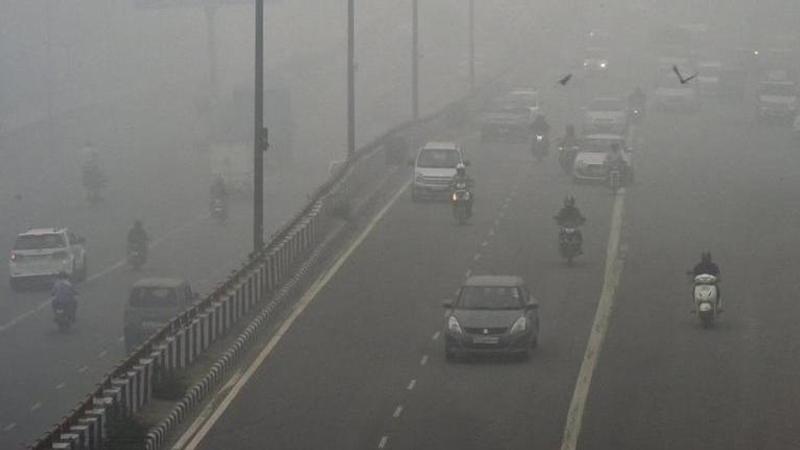Published 11:00 IST, November 16th 2019
Noida air pollution stays 'severe'; authorities' guidelines here
According to System of Air Quality and Weather Forecasting And Research (SAFAR), the overall AQI in Noida on Saturday was recorded in the severe category.

Air pollution levels in Noida forced the residents to curtail outdoor activities as AQI remained in the 'severe' category for the fourth consecutive day. According to System of Air Quality and Weather Forecasting And Research (SAFAR), the overall AQI in Noida on Saturday was recorded in the severe category with PM10 at 500 and PM2.5 at 471.
Pollution affecting residents' health
People residing in Noida have been mentioning how their eyes itch and they also face other health issues because of the pollution in the air. "I feel irritation in my eyes. I do not know what to do. My children are also not able to go outdoors due to the toxic air," said a local. According to another local, "Despite the implementation of Odd-Even in Delhi, the level of pollution in the capital's adjoining areas has not reduced. The administration must do something.”
The Centre-run SAFAR has advised people to avoid all physical activity outdoors in the wake of air pollution. They have also advised 'sensitive groups' to stop activity in case of unusual coughing, chest discomfort, wheezing, breathing difficulty, or fatigue. "If the room has windows, close them. If the air conditioner provides a fresh air intake option, close it. Avoid burning anything, such as wood, candles or even incense," the organisation stated in its advisory.
The pollution control board and Uttar Pradesh government have issued guidelines to reduce air pollution in the region. They have urged people to adopt clean technology in the manufacture of biogas, energy, compost, electricity, building materials (bricks, cement, tiles, plasterboards, etc.) and other products by recycling waste and fly ash generated from industries and other sources. Additionally, schools have been advised to stay shut for a while.
Transport drivers have been directed to properly maintain their vehicles and keep checking the carburetor and emissions from time to time. The advisory also said, "In place of chemical fertilizers, adopt organic fertilizers, Burmese compost, green manure, organic culture, compost, fertilizer and leguminous crops.”
(With ANI inputs)
Updated 14:08 IST, November 16th 2019




